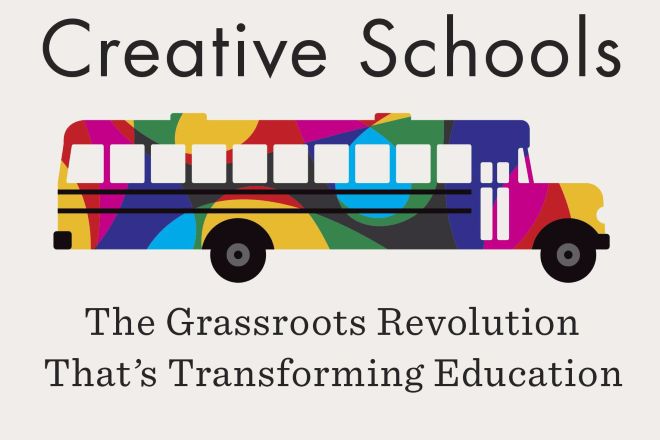Article by Leah Thayer
Photo credit: Penguin/Random House
To be clear, the most-watched TED Talk of all time does not explicitly advocate for innovation in the business office. Its presenter, however, does. Sir Ken Robinson, whose 2006 TED Talk, “Do Schools Kill Creativity?” has notched nearly 42 million views, believes creative thinking is every bit as critical in how independent schools manage financial resources as in how they educate students. “Obviously you have to keep the ship afloat while you’re refitting it,” said the British educator and author in a recent phone interview. Within those parameters, “innovation is as important a function to business officers as to anyone else.”
In his opening keynote address at the 2017 NBOA Annual Meeting in Washington, Robinson will champion the role of independent school business and operational leaders in getting their schools in front of “the real changes swirling around, and the opportunities and dangers they represent.” He has seen many private schools fall into disrepair and close — including two he attended as a boy in England — but he is optimistic about the sector’s future overall. “Independent schools have real opportunities because they’re free of some of the constraints that public schools have to face,” he said. “They can think very differently about how they work. And the best ones always have.”
As an example, Robinson cited Wellington College in Berkshire, England, a boarding and day school founded in 1859. In recent years, the venerable Wellington name has brought six more schools under its umbrella, including three in China and two state academies funded by a mix of government money and private donations. In addition, Wellington College hosts the annual Festival of Education, which is co-sponsored by two leading British newspapers. Overall, the school has strengthened its financial footing by facing outward and engaging with government entities and local communities. “I feel this is true generally of great schools,” Robinson said. “They engage the community in the broader life of the school itself. They’re blurring the boundaries between education and finances, and that can be both culturally enriching for the community and financially enriching to the institution.”
Independent schools have real opportunities because they’re free of some of the constraints that public schools have to face. They can think very differently about how they work.
Sir Ken Robinson
While the Wellington model may be ambitious, independent schools can innovate successfully on a modest scale as well, Robinson believes. “A school essentially is a community of learners, and they can be organized in all sorts of ways,” he said. The paradox is that “children absolutely love to learn. They’re voracious learners. What they’re not so keen on is being educated” — at least in the traditional classroom-desk-teacher modes. “There are 1,000 ways to do school that don’t depend on a particular way of organizing it.”
Above all, Robinson said, innovation must be continuous and ingrained in the culture. “The fact is, most organizations are based on someone having had a good idea at one point,” Robinson said. “But to survive and thrive these days, they have to have good ideas pretty much on demand.” Consider the divergent lifespans of humans (increasing) and organizations (decreasing). “One way to explain that is that the vitality of an organization depends on a constant pulse of innovation,” he said. “You have to keep adapting to the change around you. If you just keep doing what you’ve always done, sooner or later the world will overtake you.”
Looking ahead to his presentation at the Annual Meeting, Robinson said he feels “there have been many important periods of transition in education, and we’re in one now.” He welcomes the opportunity to discuss the actual practice of innovation as it applies to independent school business operations. “I promise not to use ‘creative accounting’ as a phrase,” he added.
The 2017 NBOA Annual Meeting will take place February 26-March 1 in Washington, D.C. Sir Ken Robinson will speak on Monday, February 27, 8:15-10 a.m. For information and to register, visit nboaannualmeeting.org.
Leah Thayer is editor of Net Assets and NBOA’s vice president, communications.
Download a PDF of the article.




